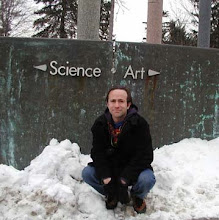(This was originally a note sent to this week's monday night group concerning our conversation.)
For me, I find that the times when I’ve felt most connected to community as being exciting and empowering. (Hence the reason I often follow up our conversations with a note of this sort.) Whether the period Habermas describes is mythical or not, and how few people it actually extended to or not, I wonder what it might have felt like. The excitement that perhaps permeated the air – people thinking, yes, we’re a part of this, and we can steer where we’re all going. I wonder then about Amy’s time with the campaign and if that feeling, that yeah, we can make a difference existed and how we can manifest that realization of empowerment.
Thinking of Nigel’s role in his community, I think of my past role in Detroit and the web-magazine I ran (which I know I mention a lot.) In looking on that time from the lens of our discussion (and I felt this way at the time) the web-mag offered a means to connect people in the community to one another and to physical events happening in their community. They could be in the know, if they chose to do so, and thus could participate based on that knowledge, again, if they chose to do so. I can say for myself, if I hadn’t done the legwork to compile information in one place for a public, I wouldn’t have had any idea what was going on right around me either. So it served me, and I know it served others. And I see the role of such offerings, and the media in general, as education – a way to gather people around a common table. To such an end, it succeeded (and I hope continues to do so.) Where I always felt disappointed was that more people didn’t help in the efforts to grow it, extend it, strengthen it, make it an even more vital presence in the community. Again, it’s the same people who help clean up and put chairs away when the party’s over.
So to that end, I think Amy’s right on: it’s that civic responsibility that needs to be imbued in people – ala Dewey’s democracy through education. If people see their responsibility for one another, they may take action from the start, rather than waiting for the crisis. (And I think, when it is crisis time, almost all people do take action – so fundamentally, we can’t say people just don’t care about others. They just don’t think about others, or that their actions matter beforehand.) - Nick
P.S. A related link concerning the advent of hyperlocal websites: http://www.nytimes.com/2009/04/13/technology/start-ups/13hyperlocal.html?_r=1&hpw

No comments:
Post a Comment